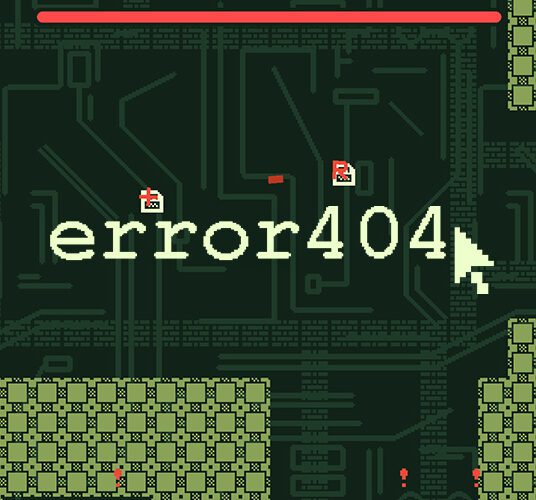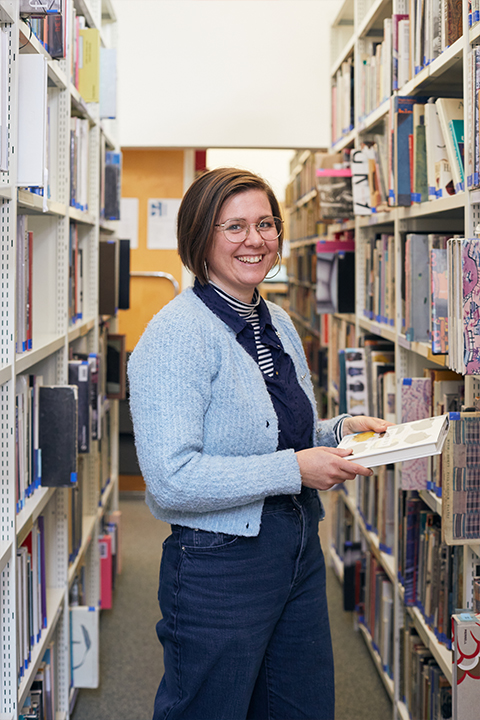



Interior Design BA (Hons)
Length:
3 or 4 year options
UCAS Code:
W250 (3 Year)
W251 (4 Year)
Institution Code:
N39
Sandwich courses:
Creative Professional Development (1 year, Level 5 diploma), or Creative Computing (1 year, Level 5 diploma), available between years 2 & 3
Turn your creativity and problem-solving skills into real-world solutions for how we live, work, and play.
BA (Hons) Interior Design offers you the chance to explore how we can reimagine, remake, reuse, and rebuild our world to meet the changing scenarios of contemporary inhabitation. Sustainable practice and inclusive design principles are key components of the course, giving our graduates the tools, knowledge and understanding to design responsibly and create spaces that improve lives.
Why study with us
- You’ll share studio and workshop spaces with our Architecture course ensuring students benefit from a lively and vibrant studio culture that mirrors the workplace.
- Respond creatively to climate change through the carefully considered use of resources and the reuse of both built environment and material resources.
- Study the fundamental skills of thinking and working in 2D and 3D methods, including technical drawings, 3D visualisation, sketching and model making.
- Explore how light, colour, materials and their acoustics affect our perception of space and our wellbeing as you consider the social implications of design.
- Learn key technical knowledge through a range of academic workshops based in a vibrant studio culture and industry-focused CAD facilities.
- Experiment with materials and construction technologies for interiors with particular focus on sustainability, efficiency and environmental performance.
- Work on a variety of exciting projects, including live briefs set by industry partners, to develop professional skills and benefit from cutting edge insights.
- Join professional bodies to broaden your industry expertise and begin networking in national and international contexts.
Course Content
Year 1
- Understand the principles of ideation and communication in interior design through a range of projects, workshops, experiments and exercises
- Explore the diverse and interdisciplinary nature of the interior and its cultural and historical context
- Examine new technologies and sustainable materials, as well as manufacturing techniques and their application to interior design
- Integrate research, analytical and reflective techniques into your creative practice.
Year 2
- Create work from concept to realisation with particular focus on understanding design briefs and user needs
- Communicate your design ideas through 2D and 3D methods, including technical drawings, 3D visualisation, sketching and model making
- Apply a flexible and imaginative approach to problem solving through enquiry-based learning, using storytelling and lateral thinking to solve design problems
- Study cultural, theoretical, and professional issues and apply social, historical and professional contexts to the subject discipline
- Explore working in a team and developing a creative role through course and university-wide collaborative projects.
Year 3
- Explore materials and technologies for the construction and operation of building interiors with particular focus on sustainability, environmental and performance issues
- Deliver a final major design project, embracing the full interior design process and demonstrating your approach to, and engagement with, contemporary interior design issues
- Complete a Research Report that provides broad contextualisation to your practice
- Participate in national competitions to further enhance your portfolio and professional profile.
Careers Information
Careers and employability are embedded within the course to ensure you’re fully prepared for the workplace. By the end of the course, you’ll have a clear idea of your individual creative methodologies, and how to apply them to define our career aspirations. You’ll underpin your ideas with insightful research and present your perspective on interior design through professionally aligned processes.
Typical career paths include
- Interior designer
- Experiential designer
- Visual merchandising and window dressing
- Scenographer or set designer
- Temporary or exhibition designer
- Lighting or sound designer
- Stylist or colour consultant
- Project management
- Design technologist
- 3D model maker and visualiser
- Design technologist
You’ll also get specialist creative careers advice from our Business and Employability Team to help support you as you plan your career.
April Palfrey
Tabbed Section
Typical UK offers
A / AS Levels – GCE
GCE A/AS Levels 3 A-level qualifications at grades BCC (104 UCAS Tariff points) or above. Where candidates are not taking 3 A-levels, Norwich University of the Arts will consider combinations of A-level/AS-level and other Level 3 qualifications.
BTEC Extended Diploma (QCF or RQF)
Distinction, Merit, Merit in an art, design or media related subject
BTEC Diploma (QCF or RQF)
Distinction*, Distinction* in an art, design or media related subject
T Levels
A T Level in any subject with overall grade Merit or above
UAL Extended Diploma
Merit
UAL Level 3 Foundation Diploma in Art and Design
Pass
UAL Level 4 Foundation Diploma in Art and Design
Pass
Foundation Diploma in Art and Design
Pass
Access to Higher Education Diploma (Art and Design)
Pass
International Baccalaureate Diploma
A minimum of 26 points
Norwich University of the Arts welcomes applicants of all ages from all backgrounds. Your application will be primarily assessed through your portfolio (if required), responses to questions asked and personal statement, so even if you have no formal qualifications or do not meet our typical offers it can still be worth applying.
If you are studying at the time of your application and your application is successful it is likely that you will receive a conditional offer.
If the qualification that you are studying is not shown, do not worry as we are able to accept other pre-entry qualifications as well as combinations of different qualifications. Please do contact our Student Recruitment Team if you have any queries.
International applications
We accept qualifications from all over the world. To find our entry requirements from a specific country, please check our dedicated international pages.
Most international students are required to hold an English language qualification. Applicants are required to have a minimum UKVI approved IELTS exam score of 6.0 overall, with a minimum of 5.5 in each section. Equivalent English language qualifications are acceptable such as, IB English language syllabus A or B/English Literature (Grade 4).
We also accept some alternative English qualifications. Learn more about our English entry requirements.
You can email us on international@norwichuni.ac.uk if you’d like to discuss your application individually.
BA (Hons) Interior Design degree portfolio guidance
Portfolios should show examples of your work — both finished and work in progress — that demonstrate your interests and skills. Your portfolio should be made up of work that reflects your creativity, personal interests and influences, as well as demonstrating your technical skills and ability. It doesn’t have to be perfect as we can assess your potential from your work in progress.
Your portfolio should be relevant to this course, but you can include a wide range of work that shows your creativity, technical competence and understanding of space.
You may wish to include some of the following:
- Drawings (ideas, observations and technical designs)
- Collages,
- Surface designs,
- Paintings,
- Photographs
- 3D visualization software (i.e. Sketch Up, CAD, Adobe Suite amongst others)
- Sculpture
- Model Making
- Prototypes
- Installations
Further portfolio advice and tips
Get more advice on presentation formats, layouts and when to submit your portfolio in the application process.
2024/25 University fees for new entrants
Norwich University of the Arts will assess students’ tuition fee status using the guidance provided by the UK Council for International Student Affairs
Students from the UK or Ireland and EU students with ‘Settled’ or ‘Pre-Settled’ status will be charged ‘Home’ fees if they meet the relevant residency requirements. They will usually be eligible for a tuition fee loan from the UK government, meaning that they won’t have to pay Norwich University of the Arts’ tuition fees upfront.
Students who do not meet the necessary residency requirements will usually be charged ‘Overseas’ fees and will not be eligible for the UK government tuition fee loan. Since 2021/22, this includes new entrants from the EU, EEA, and Switzerland who do not have ‘Settled’ or ‘Pre-Settled’ status, because the UK has now formally left the EU.
| Fee status | Course | Annual fee |
|---|---|---|
| Home | Undergraduate degree (full-time three and four year degree) | £9,250 |
| Overseas | Undergraduate degree (full-time three and four year degree) | £18,000 |
Inflation in subsequent years
The rules for inflation on fees in subsequent years depend on the type of fee status and level.
- For Home undergraduate students starting in 2024, inflation may be applied to your fees in later years, if the UK government were to increase the fee cap beyond the current limit of £9,250 per year. If such an increase were to apply, we would confirm this in advance to you of each academic year, and we would limit the increase to the maximum allowed by the Office for Students.
- For Overseas undergraduate students starting in 2024, inflation will be applied to your fees in later years. We will confirm this in advance to you of each academic year, and we will limit the increase to no more than the Office for Students’ recommended inflationary measure, which is RPI-X. RPI-X is calculated by the Office for Budget Responsibility. In setting fees for the following year, we will use the Office for Budget Responsibility’s RPI-X forecast for quarter 3 of the relevant year.
For Home and overseas postgraduate degree students starting in 2024, fees will remain the same for each year of your course.
Financial support for UK students in 2024
Tuition fee loans and loans for living costs are usually available to UK and some EU students, as well as non-repayable Norwich University of the Arts bursaries based on family income. Find out more about applying for funding.
International students
We offer a range of scholarships for international students to support your studies with us.
- Group briefings
- Academic tutorials
- Group tutorials
- Lectures
- Workshops
- Critiques (crits)
- Seminars
- Finished pieces of work
- Presentations
- Written work
- Your research
- A reflective journal
Between Years 2 and 3 of this course, you’ll have the opportunity to undertake one of the following additional qualifications:
Creative Professional Development (1 year, Level 5 Diploma)
Our Creative Professional Development Diploma gives you the chance to spend a year exploring your post-uni job options through a structured programme of input sessions and work-based learning. This year offers two much-sought-after industry placements – the first lasting six weeks, the second 12 weeks, and a group project or ‘hackathon’ exploring freelancing and business start-up.
Creative Computing (1 year, Level 5 Diploma)
Our Creative Computing Diploma introduces you to coding and computational skills that will advance and complement your creative practice. No prior experience of coding is needed, just a curiosity about creative computing and a desire to push your own practice into new realms. You’ll also develop a wider knowledge of the creative tech industries, available roles and opportunities.
Integrated Foundation Year – BA (Hons) Interior Design
An Integrated Foundation Year offers students a chance to build on their experience within their undergraduate course of choice.
An Integrated Foundation Year will help to build confidence and develop subject specific practical, creative and conceptual skills – making full use of University studios and workshops.
Typical UK offers and entry requirements for Integrated Foundation Year entry
GCE A/AS Levels
2 A-level qualifications at grades CC or higher.
BTEC Extended Diploma (QCF or RQF)
Merit, Merit, Pass in an art, design or media related subject
BTEC Diploma (QCF or RQF)
Distinction, Merit in an art, design or media related subject
T Levels
Pass (D or E on the core)
UAL Extended Diploma
An overall Pass
UAL Level 3 Foundation Diploma in Art and Design
An overall Pass
Foundation Diploma in Art and Design
Pass
Access to Higher Education Diploma (Art and Design)
Pass
International Baccalaureate Diploma
A minimum of 24 points
Norwich University of the Arts welcomes applicants of all ages from all backgrounds. Your application will be primarily assessed through your portfolio, responses to questions asked and personal statement, so even if you have no formal qualifications or do not meet our typical offers it can still be worth applying.
If you are studying at the time of your application and your application is successful it is likely that you will receive a conditional offer.
Find out more about four year degrees at NorwichTeaching Staff
News
@norwichuniarts
BA (Hons) Textile Design third year students have had their professional photoshoot with Denisa Ilie…
View this post

Norwich Student wins at Ukie Student Game Jam 2024
BA (Hons) Games Art and Design student Charlie O’Shea was awarded Best Moment-to-Moment Gameplay award for his game ‘error404’.
View news article

Claudy Woods
BA (Hons) Photography student Claudy Woods tells us about her experience attending the Year 3 London Portfolio crit, and how it has affected her work and practice.
View blog



























